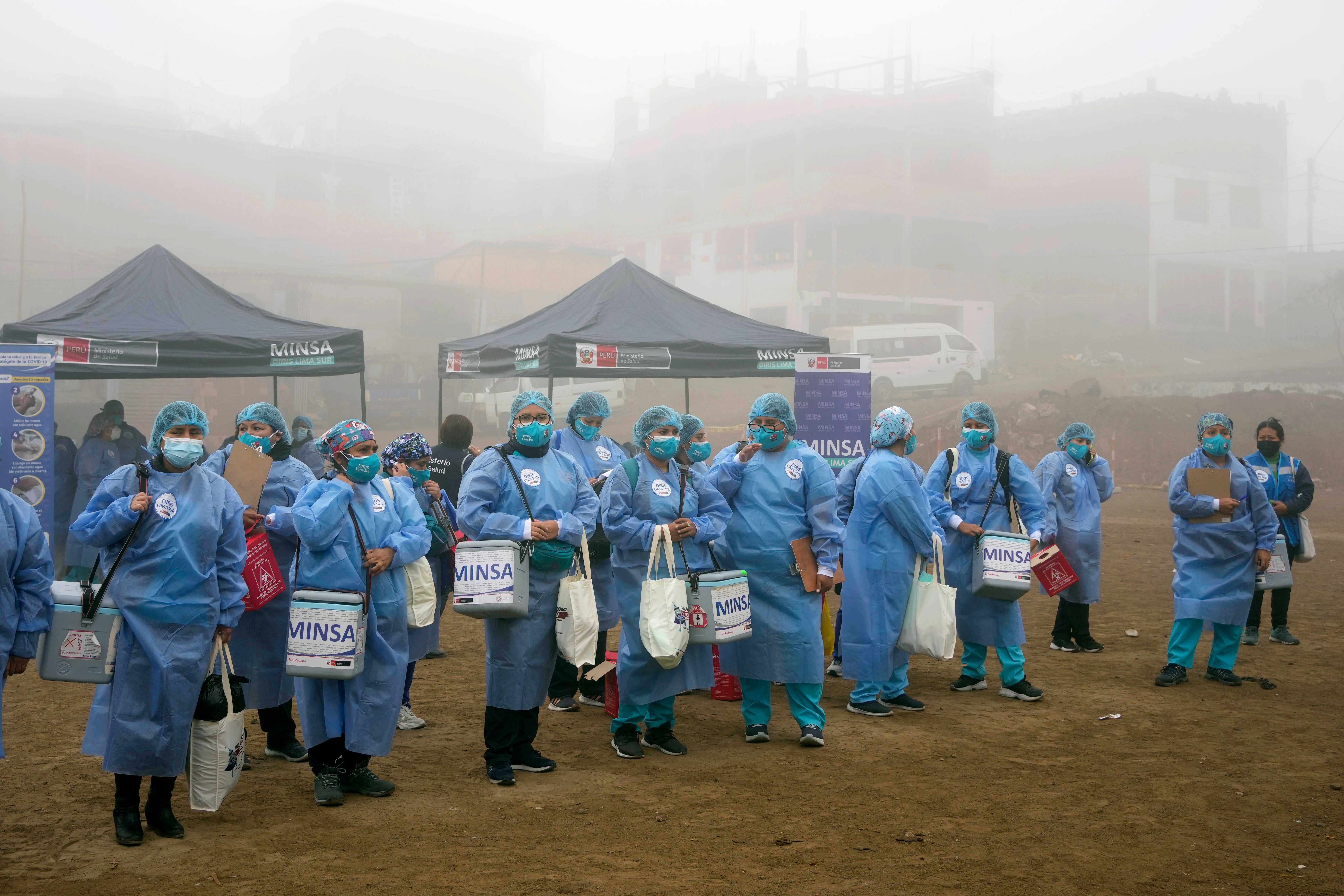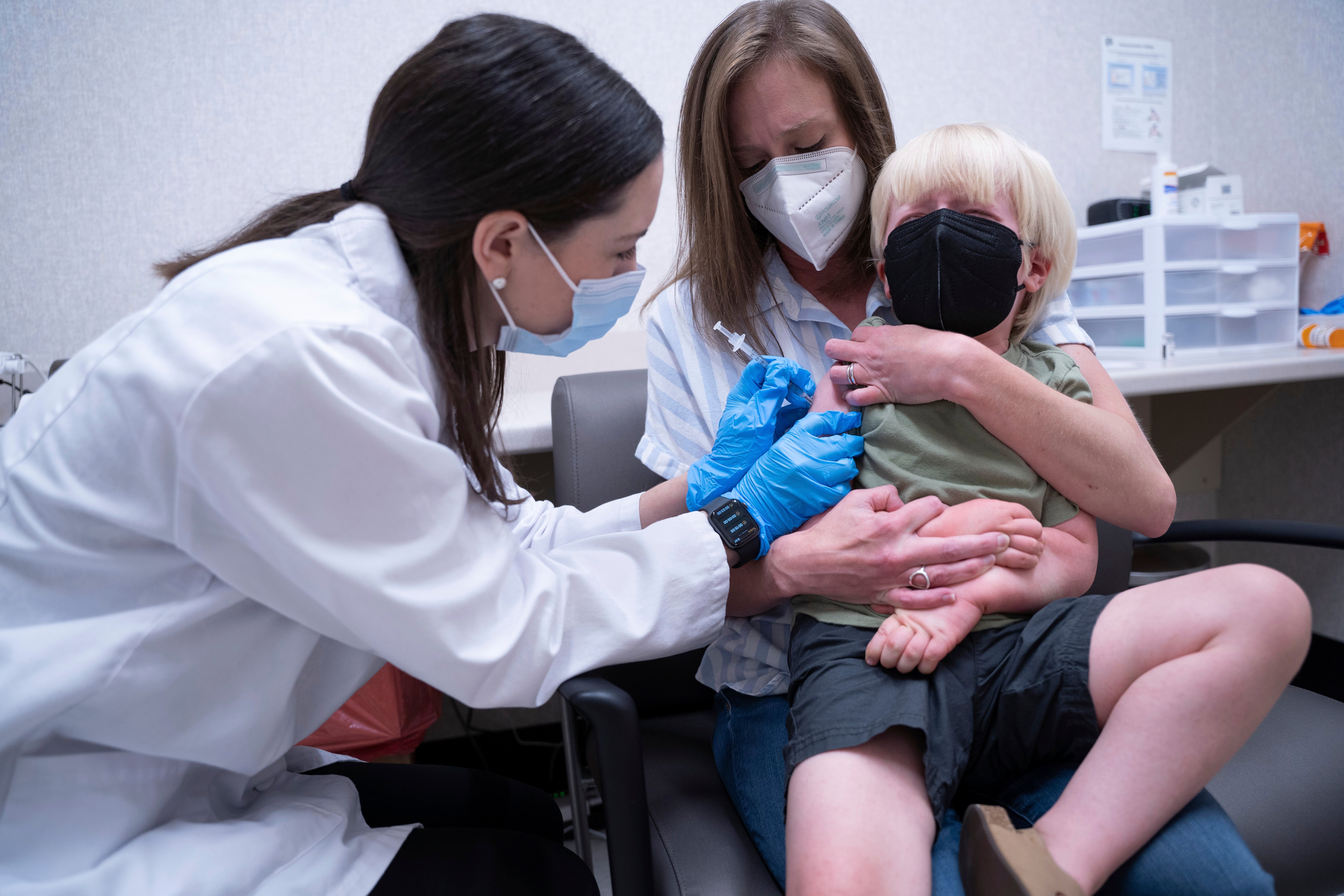Covid reinfections: How likely are you to catch coronavirus again?
Everything you need to know on how common reinfections are
Your support helps us to tell the story
From reproductive rights to climate change to Big Tech, The Independent is on the ground when the story is developing. Whether it's investigating the financials of Elon Musk's pro-Trump PAC or producing our latest documentary, 'The A Word', which shines a light on the American women fighting for reproductive rights, we know how important it is to parse out the facts from the messaging.
At such a critical moment in US history, we need reporters on the ground. Your donation allows us to keep sending journalists to speak to both sides of the story.
The Independent is trusted by Americans across the entire political spectrum. And unlike many other quality news outlets, we choose not to lock Americans out of our reporting and analysis with paywalls. We believe quality journalism should be available to everyone, paid for by those who can afford it.
Your support makes all the difference.More than two years on from the first Covid-19 case in the UK, millions of Britons have caught the virus and some have had it multiple times.
While the Office of National Statistics (ONS) noted a continued downward trend in the number of people catching the coronavirus in England, Wales and Scotland in the week ending 25 July, a spike in cases earlier this summer was largely due to Omicron subvariants BA.4 and BA.5.
Although the infection rate has subsided for now, fears persist that the UK could be hard hit by a fresh wave in autumn once the weather turns.
So just how likely is a reinfection in those who have already caught the virus and how much protection do vaccines and booster shots offer?
Here’s everything you need to know.
How common are Covid reinfections?
When the Omicron variant hit the UK last December, the rate of reinfection increased 15 fold.
Omicron’s extensive mutation allowed the virus to drive past any established immunity, scientists believe.
This is why so many people who had been vaccinated or had the virus caught it again over Christmas time.
Danny Altmann, a professor of immunology at Imperial College London, told The Guardian, Omicron is “poorly immunogenic, which means that catching it offers little extra protection against catching it again”.

Though the new BA.4 and BA.5 variants come from the Omicron line, “there’s now further evidence of the very marginal ability of prior Omicron to prime any immune memory for BA.4 or BA.5,” Professor Altmann said.
This suggests that even if you had Omicron during the Christmas and New Year’s wave, it is still possible that you will catch the virus again.
Professor Tim Spector, who leads the ZOE Covid app told The Guardian: “There are definitely a lot of people who got Covid at the start of the year who are getting it again, including some with BA.4/5 who had BA.1/2 just four months ago, who thought they would be protected.”
However, the professor added that is “rare” to be reinfected with Covid within three months.
What if I have been vaccinated?
The new BA.4 and BA.5 variants contain mutations that are not present in the early strains of Omicron.
So, even if you have been vaccinated and had a booster shot, you are still vulnerable to the new sub-variants.
Researchers from China reported in the journal Nature that the new sub-variants “notably evade the neutralising antibodies elicited by SARS-CoV-2 infection and vaccination”.

Vaccine boosters based on the BA.1 virus, such as those developed by Pfizer/BioNTech and Moderna, “may not achieve broad-spectrum protection against new Omicron variants,” the researchers warned.
“My personal bias is that while there may be some advantage to having an Omicron-specific vaccine, I think it will be of marginal benefit over staying current with the existing vaccines and boosters,” said Dr Onyema Ogbuagu, an infectious diseases researcher at Yale School of Medicine in New Haven, Connecticut.
“Despite immune evasion, the expectation can be that vaccines will still protect against serious disease,” Dr Ogbuagu said.
“If you’re due for a booster, get a booster. What we’ve learned clinically is that it’s most important to stay up-to-date with vaccines”.
How bad will my symptoms be if I get reinfected?
Generally, infections tend to be milder the second or third time round due to residual immunity the body develops.
However, the new sub-variants may have evolved to refavour infection of lung cells, rather than upper respiratory tract tissue, according to preliminary data from Professor Kei Sato and colleagues at the University of Tokyo.
This makes them more similar to the earlier and more severe Alpha and Delta variants.
Dr Stephen Griffin, a virologist at the University of Leeds, said: “It looks as though these things are switching back to the more dangerous form of infection, so going lower down in the lung.”
Though it is too early to tell if symptoms will be more aggressive in reinfection cases, the risk of these new Omicron variants “is potentially greater than that of original BA.2,” Professor Sato has said.
This article was amended on August 11 2022. An earlier version referred to Covid case numbers rising and a ‘surge’ in cases. This was incorrect as the most recent data from the ONS shows that cases have decreased following a peak earlier in July.



Join our commenting forum
Join thought-provoking conversations, follow other Independent readers and see their replies
Comments